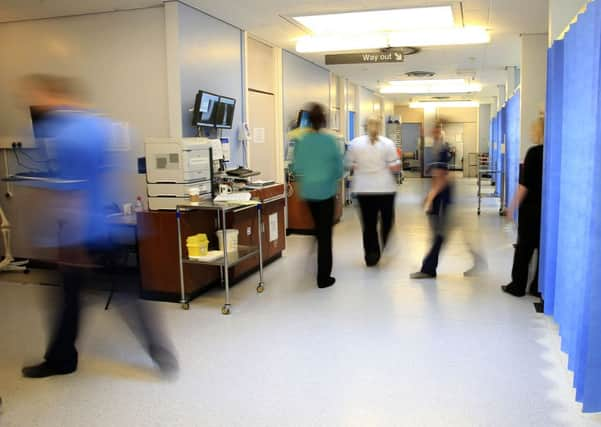Scientists hail major improvements in cancer survival


Four decades ago in the early 1970s, only a quarter of people with cancer in England and Wales were likely to live that long.
Leading experts today hail the success of improved treatments but warn of poor progress in the fight against a number of cancers amid further concerns elderly patients tend to do worse in contrast to countries abroad.
Advertisement
Hide AdAdvertisement
Hide AdOnly one in 100 people with pancreatic cancer, one in 20 of those with lung cancer and one in seven with brain tumours live for 10 years, while survival for those with cancers of the stomach and pancreas is also less than 15 per cent, with little or no improvement since the 1970s.
Lead researcher Bernard Rachet, of the London School of Hygiene and Tropical Medicine, and a member of the Cancer Research UK Cancer Survival Group, said: “These five cancers impose a huge public health burden, both because they are common and because they are often diagnosed at a late stage, when they are much harder to treat.
“We should be carrying out surgical treatment for many more patients than is currently the case. When it comes to lung cancer, for example, almost all patients diagnosed at an early stage of disease should be operated on with curative intent.”
Survival for 10 years or more is generally above 70 per cent for people with breast, prostate, testicular, womb, and malignant skin cancers, as well as Hodgkin’s disease. In the case of breast cancer, more than three-quarters of patients now live at least 10 years compared with 40 per cent in the early 1970s. For patients with the skin cancer melanoma, 10-year survival has almost doubled to 90 per cent.
Advertisement
Hide AdAdvertisement
Hide AdSome 98 per cent of men diagnosed with testicular cancer can now expect to live at least 10 years compared with 69 per cent 40 years ago, say the researchers.
But the findings, reported in medical journal The Lancet, expose a persistent age gap between younger and older patients.
“Even after we have adjusted for the fact that older people have much higher death rates from other diseases than younger people, elderly cancer patients are doing worse for all cancers,” said Dr Rachet. “In other countries, the age gap in cancer survival has become much narrower over the last 15 to 20 years than in England and Wales.”
Co-author Manuela Quaresma, also of the London School of Hygiene and Tropical Medicine, said: “More investment is urgently needed to improve early diagnosis and provide the best treatment, including more specialist surgeons, for poor-prognosis cancers like lung cancer, which have shown little or no evidence of improvement in long-term survival.”
Advertisement
Hide AdAdvertisement
Hide AdPenny Woods, chief executive of the British Lung Foundation, said it was “deeply distressing” that survival rates for lung cancer - the biggest cancer killer in the UK - continue to lag behind.
“This is a devastating consequence of late presentation and delayed diagnosis,” she said.